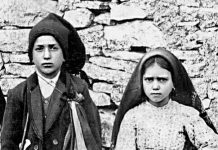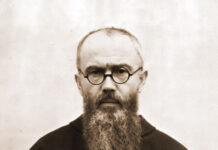In light of today’s Saint Charbel – a hermit and contemplative – and last Sunday’s Gospel on the roles of of ‘Martha’ and ‘Mary’, I thought I’d share this intriguing essay by Thomas Merton, on the respective active and contemplative lives. This distinction goes back to the earliest days of the Church, and is discussed – as Merton aptly points out – by Saint Thomas Aquinas, who claims that the most ‘perfect’ life is the contemplative, but one that hands on the fruit of contemplation, particularly through teaching. In other words, the Dominican life. Merton’s take on this provides good food for thought.
One wonders what the Trappist might have been. He never seems to have fully conquered his life-long, shall we say, struggles, and his life has more than a touch of tragedy. We only hope Merton made his peace with God before his met his unsuspected end in that hotel room in Bangkok.
Merton’s wayward life provides a contrast to the imperturbable solitary hermit of Lebanon. Would that Merton had taken more to heart his own earlier words, and the words of today’s saint – something that may be said of us all:
Those who depart from quiet are unable to conquer their passions or to fight against their adversary, because they are subjected to their passions.
Saint Charbel exhorts his fellow monks – and, yes, the rest of us – to persevere:
But in your case, you overcome the passions, and the power of God is with you.
Such is the fruit of contemplation – being alone with God – to which we should all give some time, at least for part of the day. This is the only way to bear that good fruit God intends, in whatever ‘active life’ to which we are called, in true spiritual joy and gladness.
You also know, my dear brethren, that ever since the transgression came to pass, the soul cannot know God unless it withdraws itself from men and from every distraction. For then the soul will see the adversary who fights against it. And once it has seen the adversary, and has overcome him every time he engages it in battle, then God dwells in that soul, and all the labour is changed to joy and gladness. But if the soul is overcome, then there come upon it grief, boredom, and many other kinds of heaviness.











